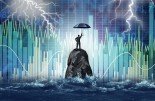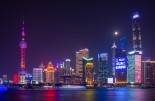Bob Homan: How seven Wild West heroes put the stock market to their liking
Bob Homan: How seven Wild West heroes put the stock market to their liking

This column was written in Dutch. This article is an English translation.
By Bob Homan, Head of the ING Investment Office
This year 'the magnificent seven' is the buzzword at the fair. The phenomenal price increases of Apple, Amazon, Alphabet, Microsoft, Meta, Nvidia and Tesla are responsible for a large part of global stock returns.
In particular, the American S&P500 index, which has already returned about 12% so far this year, would hardly have moved without the seven 'magnificent' stocks.
Incidentally, the name 'The Magnificent Seven' comes from a 1960 western in which seven heroes take on a superior force of bandits, a film that is loosely based on a Japanese epic from 1954 about – indeed – seven samurai who valiantly put themselves in the service of the defense of a threatened village.
Less known is that the English punk band The Clash also released a track with that name in the eighties. The brilliant song is a reflection on the endless reproduction of ourselves as commodities. Bankers also get a sneer: we exchange our time for money in order to continue to consume, with the scarce free time being experienced as a moment of liberation. A moment when the money can be wasted.
Concentration risk
Back to the markets. Many researchers see risks in the fact that the market is only supported by a limited number of stocks and that the weight of these stocks in benchmarks has grown considerably.
I'm less concerned about that myself. The companies also have a very large market share in terms of turnover and profit. In addition, they certainly do not supply products or services that will suddenly no longer be needed tomorrow. Each of 'the magnificent seven' (one slightly more than the other) provides a diverse spectrum of services. A company like Microsoft, for example, is better diversified in all its activities than a dozen smaller IT companies put together.
You could say that with the seven companies mentioned you already share quite a spread in the biggest growth trends of the moment. Of course there is a spread risk at the price level, as the price of some of the shares has risen sharply. You can always take a critical look at the valuation.
Who's going down?
In the films, three of the seven heroes eventually manage to put the bandits to flight, while the other four die miserably. What would that mean for the comparison with the high-yielding companies?
In the perception of the boys of The Clash, leisure was an escape from the suffering called labor. Now we spend a considerable part of our free time on the applications of today's "magnificent seven", where we can ask ourselves whether we are actually the consumer or the product.
Questions, questions, questions... For now, the risk of missing the 'magnificent seven' in the investment portfolio seems greater than having them.









